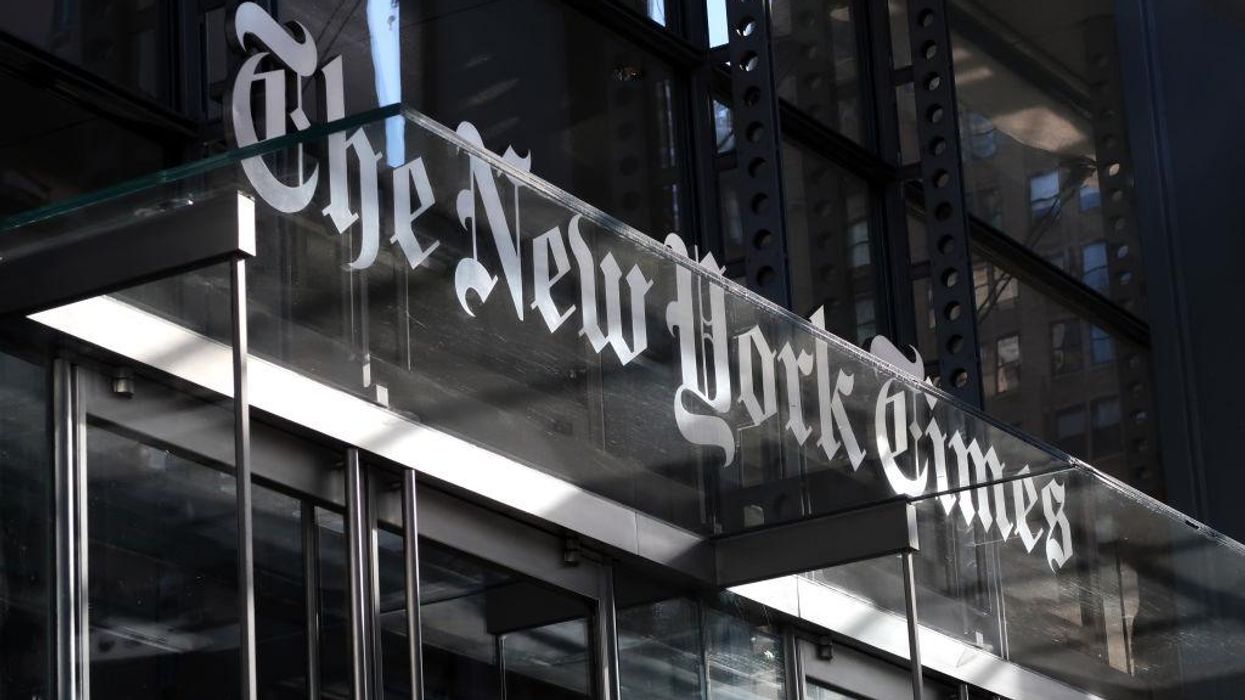
Photo by Gary Hershorn/Getty Images

On August 16, the New York Times published an article by Maggie Haberman naming three individuals contacted by FBI investigators looking into former President Donald Trump's handling of classified material. The Department of Justice argued one day earlier in favor of keeping the affidavit justifying the August 8 raid on Trump's Mar-a-Lago sealed to protect just such information.
Citing "three people familiar with the matter," Haberman — part of the team that won a Pulitzer Prize in 2018 for advancing the narrative that the former president colluded with Russia — alleged that Trump's White House counsel Pat Cipollone and deputy Patrick Philbin were interviewed by the FBI in connection with boxes of sensitive documents stored at Trump's Florida residence after leaving office.
Both men were originally dispatched to the National Archives as the former president's representatives.
Philbin is said to have been questioned in the spring about how 15 boxes of material ended up at Mar-a-Lago. National Archives officials allegedly contacted Philbin, indicating they wanted his help in acquiring certain documents said to have been in Trump's possession. Philbin reportedly made an effort to return the documents but failed.
Trump's correspondence with North Korean dictator Kim Jong-un and a letter to Trump from former President Barack Obama (written on Obama's way out of office) were among the items reportedly sought by the National Archives that ended up at Mar-a-Lago.
Investigators sought out Philbin and Cipollone after the National Archives referred the matter to the DOJ.
Haberman noted that Philbin is among eight people who worked for Trump who have been contacted by the FBI since a grand jury was formed this year. She also named former White House staff secretary Derek Lyons as another person interviewed as part of the ongoing investigation.
One day prior to the New York Times' publication of this article naming persons contacted by investigators, the DOJ suggested that the affidavit that accompanied the warrant permitting federal agents to raid Mar-a-Lago must remain sealed, otherwise names and information about those involved in the investigation might come out.
According to the DOJ's August 15 omnibus response to the U.S. District Court for the Southern District of Florida, "Disclosure at this juncture of the affidavit supporting probable cause would ... cause significant and irreparable damage to this ongoing criminal investigation."
The filing, written by U.S. Attorney Juan Gonzalez and chief at the DOJ's counterintelligence and export control section Jay Bratt, noted that the affidavit contains "highly sensitive information about witnesses, including witnesses interviewed by the government."
Owing to information about witnesses being "particularly sensitive given the high-profile nature of this matter and the risk that the revelation of witness identities would impact their willingness to cooperate with the investigation," Gonzalez and Bratt urged U.S. Magistrate Judge Bruce Reinhart not to disclose the affidavit or its contents.
Notwithstanding the DOJ's concerns, Reinhart will hear arguments on Thursday on whether or not to publicize the affidavit used to justify the raid.